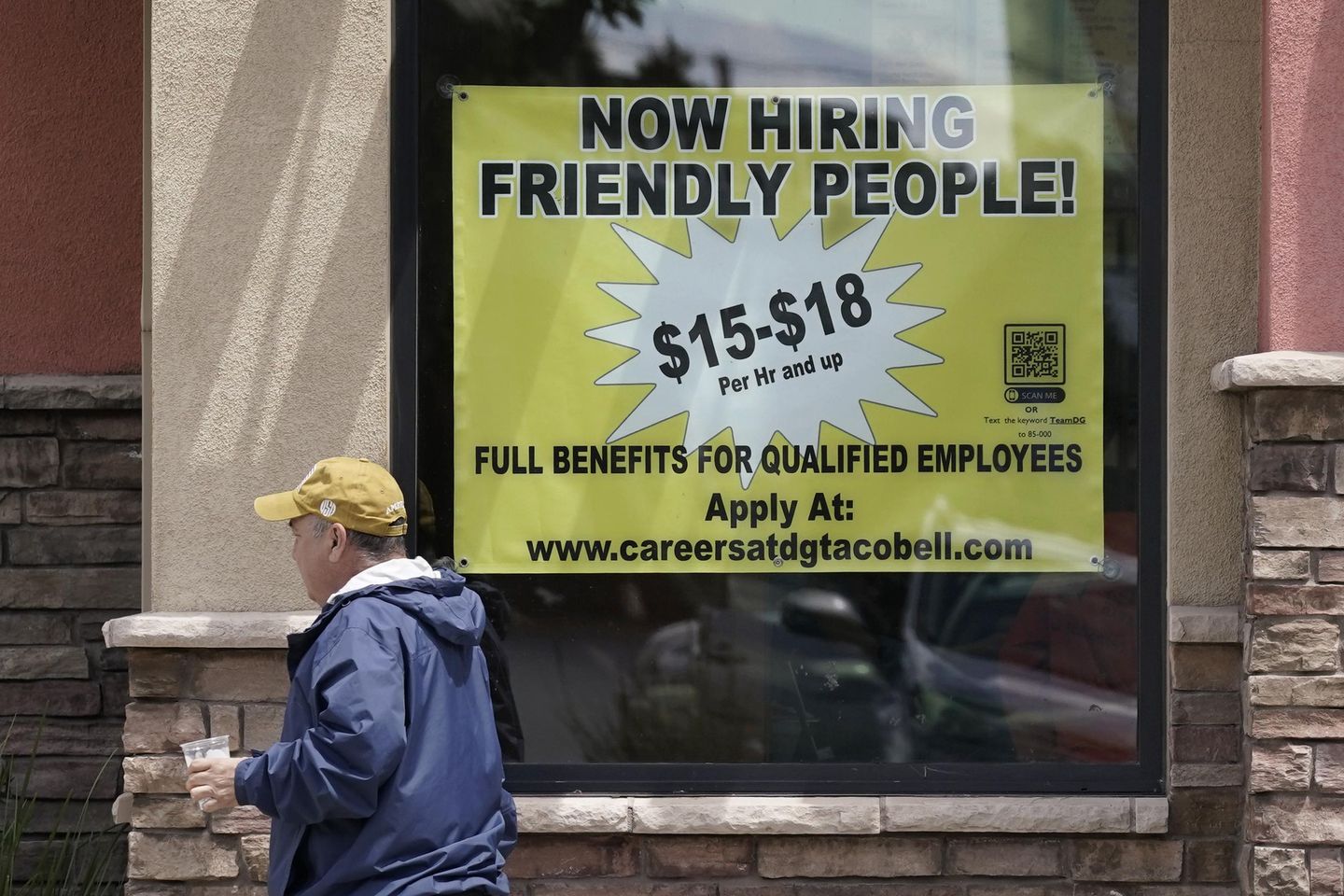
Hourly workers in half of the states will see minimum wage increases in 2024, and financial analysts predict the raises will kill more service industry jobs with automation.
Among the 25 states raising rates next year, 22 will implement the changes on Jan. 1, with three going up to at least $16 an hour in base pay: California, New York and Washington. Nevada and Oregon will increase their base rates on July 1, followed by Florida on Sept. 30.
The left-leaning Economic Policy Institute estimated Thursday that the Jan. 1 increases will boost pay by $6.95 billion for 9.9 million workers.
Such increases are “essential” as long as the federal minimum wage remains stagnant at $7.25 an hour in the face of high inflation, said Holly Sklar, CEO of the advocacy group Business for a Fair Minimum Wage.
“Unfortunately, federal minimum wage increases have been too little, too late in recent decades and [have] fallen further and further behind the cost of living,” Ms. Sklar added.
Brian Marks, an economist who teaches business analytics at the University of New Haven, said the hikes will put “some downward pressure” on hiring.
“Firms will not only look to reduce labor hiring but to change the nature of their business to use more self-checkout and automated self-service,” Mr. Marks told The Washington Times. “It’s already happened in the grocery store industry and it’s moving on to other industries.”
However, he said the raises won’t increase unemployment due to a tight labor market. He said they also won’t add much to inflation since many restaurants and retailers have already implemented forward-looking price increases disguised as “service fees.”
The national unemployment rate hit 3.7% in November, below the Federal Reserve target rate of 4% to 6%. It has hovered between 3% and 4% since 2021, when many service workers returned from pandemic lockdown furloughs.
Although inflation has cooled from its 40-year high at the height of the pandemic, the cost of groceries, rent and other goods and services remains elevated from 2019. The U.S. inflation rate hit 3.14% last month — well above the Fed’s target of 2%.
Workers in 20 states still earn the federal minimum of $7.25, which Congress hasn’t raised since 2009. Those states are primarily in the Midwest and South — including Louisiana, Texas and Wisconsin.
A bill sponsored by Sen. Bernard Sanders, Vermont independent, would raise the federal minimum wage to $17 an hour. If signed into law, the Congressional Budget Office estimates this increase would eliminate 700,000 jobs to boost the pay of millions of workers.
Hiking the minimum wage also raises the bar for unskilled workers to find jobs, said Walter Block, an economist who teaches at Loyola University New Orleans.
“It mandates that anyone with a productivity level below that stipulated by law will be unemployable,” Mr. Block said.
“If the law requires a wage of $10 per hour, and your productivity is only $7 hourly, then any firm foolish enough to hire you will lose $3 every 60 minutes,” he added. “Either they will not hire you or they will go broke if they do that once too often.”
Washington, which ties annual increases to inflation, will have the highest state minimum in the country as it increases from $15.74 to $16.28 an hour on New Year’s Day. New York will go up to $16.
California, the largest and most prosperous state, will raise its hourly minimum from $15.50 to $16. A law passed in April will make employers pay fast food workers even more — at least $20 an hour.
“No doubt automation will replace workers who are too expensive for a given business,” said Michael Warder, a California-based business consultant and former vice chancellor at Pepperdine University. “Other businesses may choose to move out of state. Customers may shop elsewhere.”
Sean Higgins, an analyst at


